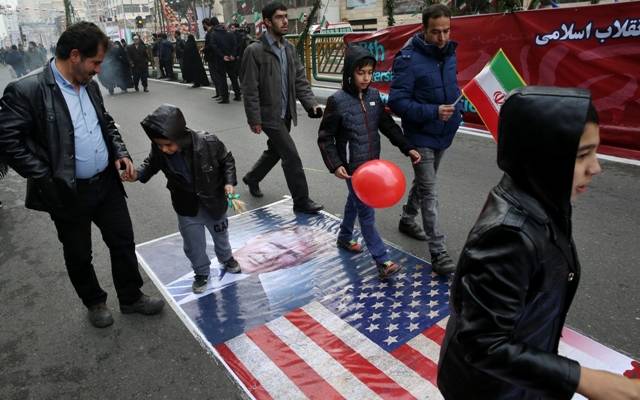US President Donald Trump recently offered to meet Iran’s President Rouhani without any preconditions. What would be the purpose of such a meeting? What would be the potential impact on Israel and the wider Middle East?
By: Daniel Krygier
Like Israel, President Trump has been a strong critic of the Obama-led nuclear deal in 2015. At the time, the official purpose of the deal was to moderate the Iranian regime’s policies through financial enticement. As Israel feared, the opposite happened.
The well-being of the Iranian people was never a priority for the Islamist regime in Tehran. Instead, the infusion of billions of dollars from abroad was used by the ayatollah regime to escalate its aggressive expansionism against Israel and the Sunni Arab world.
Unlike Obama, Trump appears to share Prime Minister Netanyahu’s view that no deal is better than a bad deal. This conviction led to Washington’s decision to withdraw from the nuclear deal in May 2018. However, Trump has also indicated that he is prepared to negotiate a new deal with Iran.
Obama’s Iran deal was dangerous because it undermined Israel’s and America’s security. Tehran sensed Obama’s desperation to get a deal at almost any price and exploited it. The Iranian regime got plenty of cash without being forced to change its aggressive conduct.
It is highly unlikely that Trump will sign a new Iran deal that undermines Washington’s and Jerusalem’s security interests. The current US President has showed willingness to talk to foes like North Korea. However, Trump has also indicated that he is not afraid to walk away from a bad deal.
Neither Israel nor the United States can change the militant ideology of the Iranian regime. Only regime change can address that issue. However, financial pressures on Iran will undermine Tehran’s ability to threaten Israel and the Sunni world. Iran’s economy is weak and there is growing domestic opposition in Iran to Islamist regime’s costly foreign expansionism.
Economic sanctions on Iran will increase the unpopular Islamist regime’s vulnerability at home. Trump and Netanyahu have both reached out directly to the Iranian people, telling them that they deserve a better future. Trump could offer the Iranian regime certain financial incentives in return for withdrawing its forces from places like Syria, Lebanon, Iraq and Yemen.
The right mix of carrots and sticks could turn the Iranian people into an active ally of Israel and the United States. Financial pressures could force the Iranian regime to choose between staying in power or endangering its future through its continued aggression against Israel and other US allies.
Time is not on the side of the Islamist regime. US sanctions, Israeli military operations against Iranian targets and widespread dissatisfaction at home, gives the ayatollah regime an increasingly limited shelf-life.
Destroying Israel has been a strategic goal of the ayatollah regime since its inception in 1979. However, when forced to choose between its own survival and continuing to threaten the Jewish state, Tehran should think twice before rejecting any offer from President Trump.
